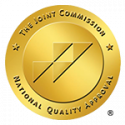Social settings can be intimidating and anxiety-inducing for anyone, but these situations can pose even greater challenges for individuals in addiction recovery. The fear of judgment, the pressure to socialize, and the risk of relapse can all contribute to heightened anxiety levels. At our addiction recovery center, we understand the importance of overcoming anxiety to build a strong support network and enjoy a fulfilling life in recovery. In this blog, we will explore practical strategies to ease stress in social settings.
What is Social Anxiety?
Social anxiety is a disorder that causes intense fear and self-consciousness in social situations. It can be so severe that it interferes with daily life, making it difficult to make friends and participate in everyday activities. Symptoms include intense fear of being judged by others, worrying about embarrassing oneself, feeling self-conscious and anxious in social situations, fear of interacting with strangers, and physical symptoms such as blushing, sweating, and difficulty speaking.
The struggles of social anxiety are uniquely challenging for individuals on the path to recovery, as the social interactions of daily life (especially gatherings around celebrations and holidays) may trigger heightened anxiety. The fear of judgment, awkwardness, or saying the wrong thing can intensify the anxiety, potentially triggering a desire to escape through substances again. It’s crucial to acknowledge that the recovery process is not linear, and setbacks due to social anxiety are a natural part of the journey. Let’s look at ways to build coping strategies!
Ways to Ease Social Anxiety
1. Set Realistic Expectations
Setting realistic expectations for yourself can help you stay in the moment and reduce your anxiety. You can set small goals for the evening, such as speaking to one new person or staying for a certain amount of time.
Don’t pressure yourself to be the life of the party or to socialize with everyone in the room. Set realistic expectations for each social event, and remind yourself that it’s okay to take breaks or step away if you feel overwhelmed. Take a break when needed if you are overwhelmed by a social situation. This could involve stepping away from the group momentarily or taking a short walk outside. Taking breaks can help you refocus and regain control of your emotions.
2. Arrive Early
Arriving early in a social setting can be helpful. By arriving early, you can get familiarized with the environment and people who will be there, reducing the feeling of uncertainty. Being early also allows you to pick a spot that works best for you – perhaps closer to an exit if you feel easily overwhelmed or near other friendly faces if you feel brave. In addition, you might feel more natural about leaving the gathering if you’d like to leave early.
3. Practice Deep Breathing and Mindfulness
Deep breathing and mindfulness techniques are powerful tools to help reduce anxiety in social situations. Taking slow, deep breaths can calm your nervous system and bring you back to the present moment. Mindfulness practices can also help you focus on the here and now rather than letting your mind wander into fearful scenarios. Learn more about our mindfulness-based outpatient program here!
4. Bring a Sober Support Buddy
Having a trusted friend or sponsor by your side can provide extra support. You can lean on them when you’re feeling uneasy; they can help steer you away from triggering situations. Having someone who understands your overall goals can act as a buffer for you if they recognize you’re feeling uncomfortable. Also, it can be comforting to be in the company of someone you don’t feel like you need to explain yourself to.
5. Have an Exit Plan
Social anxiety can be crippling, and it can prevent you from enjoying the moment in a social setting. One way to ease your anxiety is to have an exit plan. Knowing that you can leave any time and not have to make excuses or draw attention to yourself allows you to relax and focus on the present instead of worrying about potential future embarrassment. Your plan could involve setting a specific time frame for how long you plan to stay or having a prearranged signal with your sober buddy that it’s time to go.
6. Focus on Progress, Not Perfection
Feeling anxious in social settings is a common experience, but it doesn’t have to be overwhelming. One way to cope with anxiety is to focus on how far you’ve come. Instead of worrying about all the details that you have to get right, try focusing on the progress that you are making. Acknowledge even small victories, and don’t let setbacks derail you. Celebrate your progress in managing anxiety and putting yourself out into the world.
Social anxiety doesn’t have to cast a shadow over your addiction recovery. At Sobriety Solutions, we believe in equipping our clients with the tools they need to navigate social settings with confidence and sobriety. By acknowledging your feelings, practicing mindfulness, and setting realistic expectations, you can gradually overcome anxiety and build solid and meaningful connections. Together, we can create a supportive environment where everyone can thrive in their journey toward lasting recovery.
Are you or a loved one ready to make a change? Learn more about our programs.










